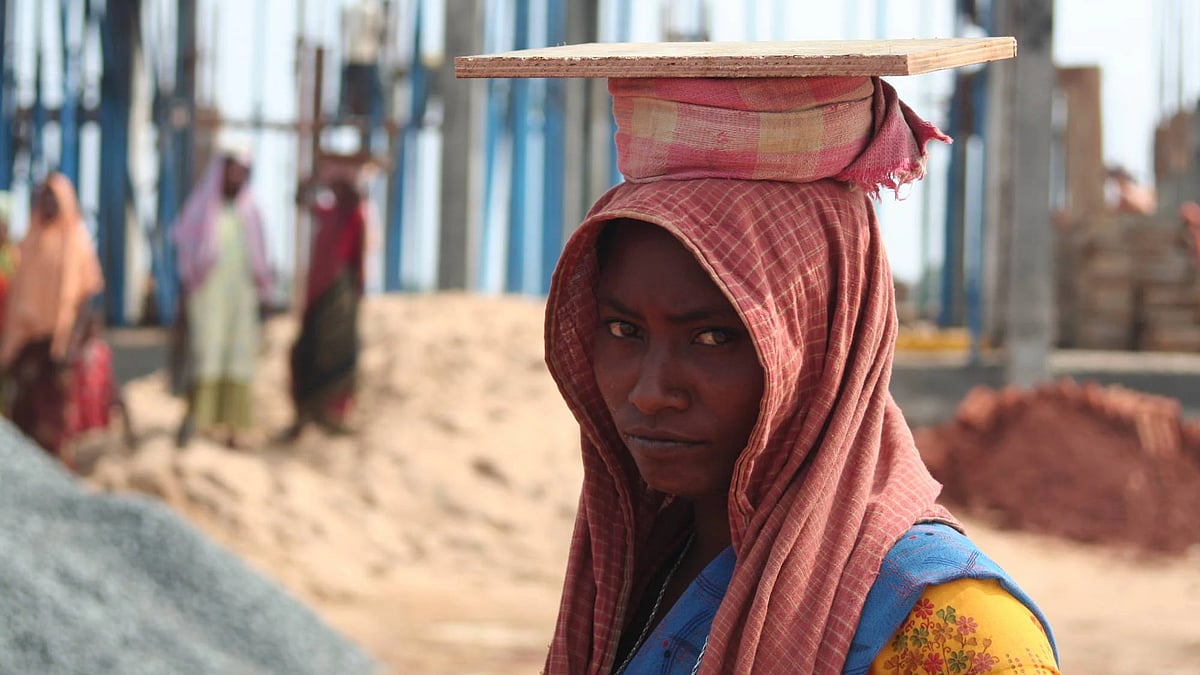Nation
Bihari migrants in TN unlikely to trek home to vote amid job insecurity
As per the 2011 Census, 7.2% of Bihar’s population lived in other states as migrants

For many migrant workers from Bihar settled in Tamil Nadu, journeying over 2,000 km back home to cast their vote during the two‑phase elections in early November is simply not feasible. Their tenuous, low‑wage jobs typically offer no leave or flexibility, making time off an unaffordable luxury.
Thousands who left Bihar in search of work now find themselves tethered to construction sites, factories, homes and farms far from their native districts.
“Most of us in the construction sector stay at the site, cook our own food, and eat there. We rarely go out. We work on holidays and sometimes past sunset to earn a little extra for our families,” said Ajay Kumar, a construction labourer.
He added, “In case I decide to go to Patna, I would need six days for the round trip and a few more to spend with my family. So, I may not go home.”
Many migrant families have begun rooting themselves locally — enrolling their children in Tamil Nadu schools and even registering for electoral rolls here.
“They’ve even admitted their children to local schools, and a few have registered themselves in the electoral rolls here. So, they are unlikely to vote in Bihar,” said Siluvai Vasthian of HEAL Movement, an NGO that works with marginalised communities and unorganised workers.
It is important to mention that as per the last census in 2011, about 7.2 per cent of Bihar’s population were counted as out‑migrants living in other states. The actual present-day percentage is expected to be much higher owing to rural distress, crop failures and climate exigencies-related floods and droughts.
Published: undefined
Right to vote in jeopardy?
Efforts by the civil society and local administrations have been instrumental in shifting the next generation from labour to education, giving Bihari migrant children in Tamil Nadu a more stable future. Yet this very settlement works against their electoral participation in their home state.
According to official figures, migrant workers from Bihar form the second‑largest group of interstate migrants in Tamil Nadu after those from Odisha, with nearly 2.51 lakh officially registered.
Tamil Nadu’s total registered interstate migrant workforce exceeds 12.17 lakh, drawn from states including Jharkhand, West Bengal, Uttar Pradesh, Assam and others. Estimates suggest around 35 lakh inter‑state migrant workers are employed across the state’s 38 districts, working in sectors such as construction, mining, hospitality, manufacturing, textiles and retail.
A recent report from the Tamil Nadu State Planning Commission — titled Life and Times of Migrant Workers in the Chennai Region – 2024‑25 — notes that a large proportion of migrants in the Chennai region originate from Bihar, Odisha and Assam. The study also highlights the precarious nature of their employment: many work long hours without formal contracts, often just above the poverty line.
Some workers like Alok, employed in the organsied hospitality sector in Chennai, bluntly admit they cannot afford to forfeit wages. “Going to Bihar would mean losing several days of wages, which I can’t afford,” he told PTI, urging the government to institute mechanisms allowing migrants to vote from their place of work.
As election day approaches, the dilemma faced by these workers underscores a deeper challenge of democracy: can citizens who contribute to another state’s economy remain enfranchised in their home states when the opportunity to vote demands impossible sacrifices?
With inputs from PTI
Published: undefined
Follow us on: Facebook, Twitter, Google News, Instagram
Join our official telegram channel (@nationalherald) and stay updated with the latest headlines
Published: undefined